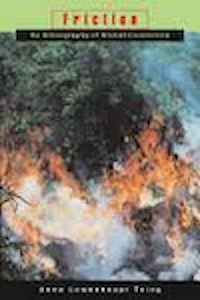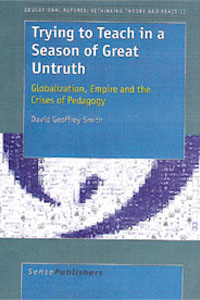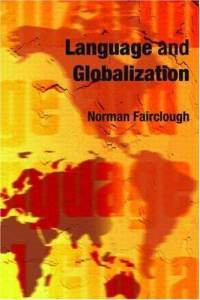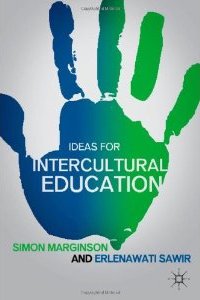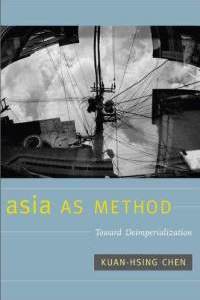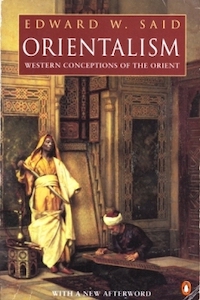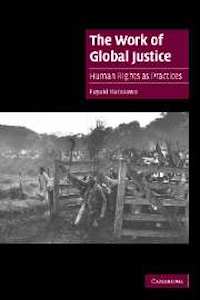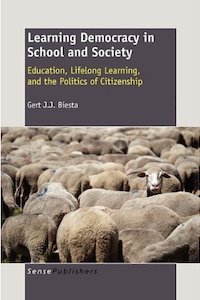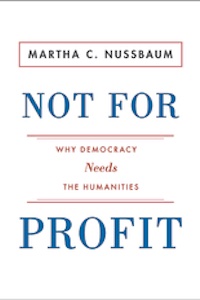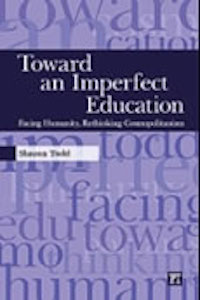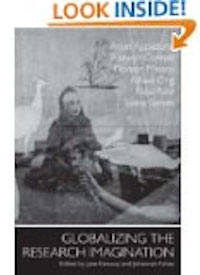Archive
Global Education Research Speaker Series
The Global Education Research Speaker Series is an annual feature in which we host distinguished scholars, community members, activists, and leaders to share their ideas about compelling issues of international and global interest. Please join us for one of these remarkable events. Please contact Dr. Paul Tarc (ptarc2@uwo.ca).
Publications
Budrow, J., & Tarc, P. (2018). What Teacher Capacities do International School Recruiters Look For? Canadian Journal of Education, 41(3), 860-889.
Gadanidis, G., Gadanidis, J. & Huang, A. (2005). Using humor to gain mathematical insight. Mathematics Teaching in the Middle School 10(5), 244-250.
Larsen, M. & Al-Haque, R. (2019). Canadian Internationalization Policy Network as Assemblage. In R. Desai Trilokekar, M. Tamtik & G. Jones (Eds.) International Education as Public Policy in Canada. Montreal: McGill-Queen’s University Press.
Larsen, M. (2019). Secondary Education: Canada. Bloomsbury Education and Childhood Studies. M. Tatto and I. Menter (Eds.). London: Bloomsbury.
Larsen, M. (2019). Hygge, Hope and Higher Education: A Case Study of Denmark (pp. 71-89). In P. Gibbs & A. Peterson (Eds.) Higher education and hope: Institutional, pedagogical and personal possibilities. New York/London: Palgrave Macmillan.
Li, J. (2019, forthcoming). Autonomy and Chinese University 3.0: A Zhong-Yong model. Specially invited for The China Quarterly, Cambridge, UK.
Li, J. (2019, forthcoming). A re-examination of the Opinion on the All-round Deepening of the Reform of Teaching Workforce in the New Times: A case study of the Ontario College of Teachers. Specially invited for Jiaoshi Jiaoyu Yanjiu (Teacher Education Research), Beijing, China.
Li, J. (2019, forthcoming). China’s humanistic Zhong-Yong approach of educational partnerships for international development: Confucius Institutes and Classrooms reflected from Ubuntu and Confucian perspectives. Bandung: Journal of the Global South.
Srivastava, P., & Read, R. (In press). Philanthropic and impact investors: hybrid organisations and the problem of definition. In, N. Ridge & A. Terway (Eds.), Philanthropy in education. Edward Elgar.
Srivastava, P., & Read, R. (In press). New education finance: Exploring impact investment, networks, and market-making in South Asia. In, P. Sarangapani & R. Pappu (Eds.), Handbook of education systems in South Asia. Springer.
Tarc, P. (2019). Internationalization of Education as an Emerging Field of Study? A Conceptualization of International Education for Cross-domain Analyses. Policy Futures in Education, 17(6), 732-744.
Tarc, P., Mishra Tarc, A., & Wu, X (2019). Anglo-Western international school teachers as global middle class: Portraits of three families. Discourse: Studies in the Cultural Politics of Education, 40(5), 666-681. DOI: 10.1080/01596306.2019.1570635.
Tarc, P. (2018). ‘Walking the talk:’ A conceptualization of international mindedness to inform leadership in international schools. Peabody Journal of Education, 93(5), 486-499.
Lafleur, M., & Srivastava, P. (2019). Children’s accounts of labelling and stigmatization in private schools in Delhi, India and the Right to Education Act. Education Policy Analysis Archives, 27(136). https://epaa.asu.edu/ojs/
Zhou, G., Liu, T., & Rideout, G. (2017). A Study of Chinese International Students Enrolled in the Master of Education Program at a Canadian University. International Journal of Chinese Education, 6(2), 210-235.
2012 Special Issue of Canadian and International Educations Theorizing International Education: (Shifting) Contexts, Concepts, Methods Dedication to Joe Farrell by Marianne Larsen
Exploiting globalization while being exploited by it: Insights from post-Soviet education reforms in Central Asia (Sarfaroz Niyozov and Nazarkhudo Dastambuev)
Abstract
Building on an examination of comparative and international literature and their research and development experiences, the authors highlight a number of continuities, changes, and issues between Soviet and post-Soviet, international and Central Asian experiences of borrowing and lending of education reforms. Even though Central Asian actors and institutions are not totally helpless victims and though international experts and NGOs appear well-meaning in these globalizing education transfers, the processes are leading toward reproducing global and local dependencies and inequalities. The trajectory of education reforms in Central Asia echo those of other developing countries. In response, the authors urge local policy makers and comparative educators to join in a critical and reflexive strategic venture of re-encountering and reshaping the global and neoliberal offers to serve the needs of interconnected local and global justice.
North-South International Education Partnerships: Two Canadian Projects with Tanzania (Aniko Varpalotai, Chantal Phillips, and Marian Roks)
Abstract
The following is a review of two Canadian-Tanzanian international partnerships working in Tanzania within the education sector. Project TEMBO (Tanzania Education and Micro-Business Opportunity) supports the development of formal and non-formal education for girls and women in collaboration with other local and international non-governmental organizations. The Huron University College/University of Dar es Salaam project is strengthening post-secondary educational opportunities in collaboration with civil society organizations and local government. Both projects are focused on literacy in the broadest sense to achieve critical skills in civic engagement, poverty reduction, problem solving, decision-making and reducing gender imbalances, and as such are in line with the United Nations’ Millennium Development Goals (MDGs). Achieving improved access to information and educational opportunities for Tanzanians that support poverty reduction are the shared objectives of these two projects. This article will outline some of the methods which have been used to successfully offer access and educational opportunities despite ongoing challenges and constraints within the project environments.
The role of language in processes of internationalization: Considering linguistic heterogeneity and voices from within and out in two diverse contexts in Ontario (Julie Byrd Clark, Eve Haque, and Sylvie A. Lamoureux)
Abstract
This multi-voiced paper considers the role of language and linguistic heterogeneity in relation to larger discourses and processes of internationalization and globalization in Canadian higher education by examining two particular educational contexts in Ontario: newly arrived adult students participating in Immigrant language training programs; and Franco-Ontarian students transitioning to post-secondary schools and gaining access to higher education. The authors argue for a multidimensional conceptual approach to theorizing internationalization; one that takes into account the significance of language from the global, transnational and local levels of the social world whereby linguistic heterogeneity is viewed as the “norm” and one that allows for a broader and deeper engagement when considering what international education might mean for citizenship, integration, and linguistic minorities in Canada.
Reconceiving International Education: Theorizing Limits and Possibilities for Transcultural Learning (Paul Tarc, Aparna Mishra-Tarc, Nicholas Ng-A-Fook, and Roopa Desai Trilokekar)
Abstract
This multi-voiced paper explores the micro-level dimensions of human learning and becoming from transcultural encounters, lessons and/or curriculum under heightened transnationalism. It posits that mainstream approaches to conceptualizing the ‘education’ of international education lack sufficient theorization of difference, sociality, history and learning in trans-local spaces and suggests that there are expanding networks of transcultural engagements to be examined under the umbrella of international education. To explore this reconceived pedagogical landscape of international education three specific cases are presented: an auto-ethnographic reflection on coming into and making sense of one’s international experience, a conceptual framing of internationalizing preservice education curriculum and a qualitative analysis of the pedagogical impacts of undergraduates’ international internships. Each case illustrates the complexities, possibilities and challenges of (framing) learning and becoming in sites of transcultural engagement.
Commentary: Cultivating a defiant global research imagination in international education (Jane E. Kenway)
Book Review: Educating children in conflict zones: Research, policy and practice for systemic change. A tribute to Jackie Kirk (Allyson)
Byrd Clark, J. & Dervin, F. (accepted, forthcoming). Reflexivity in Language and Intercultural Education: Rethinking multilingualism and interculturality in accelerating, complex and transnational spaces. The Routledge Language and Intercultural Communication series. London/New York: Routledge.
Synopsis
With the impact of accelerated globalization, digital technologies, mobility and migration, the fields of Applied Linguistics, Language and Intercultural Education have been experiencing different shifts. One shift that still needs to be further explored is that of systematic and coherent reflexivity in researching various phenomena related to notions of language and culture. This unique and timely book thus examines the significance of reflexivity and multimodality, particularly when researching the multifaceted notions of multilingualism and interculturality in education. It represents a serious attempt to merge and bring into dialogue these two vital concepts. The volume also contributes to current critical approaches to certain representations of languages and cultures in identity politics. As such, the authors offer innovative ways of incorporating both reflexivity in teaching, learning, and research. The chapters span a diverse range of educational settings in Asia, Australia, Canada, Europe and The United States and make a case for change in research on multilingual and intercultural education and research.
Byrd Clark, J. & Lamoureux, S. (in press). Rethinking multilingualism: Complex identities, representations and practices of Canadian youth moving through plurilingual times in Otwinowska, A. & De Angelis, G. (Eds.) Teaching and learning in multilingual contexts: Sociolinguistic and educational perspectives. (pp.118-145) Clevedon, UK: Multilingual Matters.
Abstract
Drawing upon a sociolinguistic multi-sited ethnography and an interdisciplinary approach (Byrd Clark 2009, 2010, 2011), the authors examine the impact of globalization and Official language policies on the construction of identity and the development of linguistic repertoires as an essential component of language education, by looking at the significance of multilingualism through the experiences and symbolic investments of multilingual youth participating in university French language teacher education programs in the multicultural landscapes of Toronto and Windsor, Ontario, Canada, where the population rates have nearly tripled because of high immigration rates during the last twenty-five years. In this chapter, we argue for a multidimensional conceptualization of multilingualism particularly by signifying that individuals’ investments in representations of languages and identities are much more symbolic, complex, and ideological. As such, the participants’ symbolic investments demonstrate how some of their real everyday social and linguistic practices challenge social categories through the complex and (sometimes) simultaneous ways in which they manage, negotiate, and resist discourses of language and power.
Byrd Clark, J. (2011). Toward a policy of heterogeneity: The Journeys of Integration of Multilingual Student Teachers of FSL in Ontario in Plurilingual Times. OLBI Working Papers, volume 3, pp. 1001-1014. Ottawa, Ontario, Canada: University of Ottawa Press.
Abstract
This article details the critical need for a policy of heterogeneity in Canada. Canada is changing, with a growing number of youth with multiple, overlapping, and complex identities and linguistic repertoires. From this end, I argue that we can no longer look at language, identity, or community as separate, static, or fixed categories and in this vein, we need official and public policies that support linguistic diversity and value heterogeneity. Drawing upon my ethnographic and sociolinguistic research which investigates multilingual youth training to become teachers of French as a Second Language (FSL) in Ontario, I demonstrate the importance of sociocultural research as regards multilingualism for language planning and policy, particularly when it comes to creating policies that reflect people’s use of language(s) rather than simply seeing people as language users. In my fieldwork, I have found that the impact of multilingual practices tend to blur traditional boundaries related to languages, identities, cultures and education. This paper contributes to language policy and planning as it aims to put forth new ways of conceptualizing multilingualism in relation to the development of theory, policies, and professional practice in the fields of language education, teaching and public policy.
Byrd Clark, J. (2009). Multilingualism, citizenship, and identity: Voices of youth and symbolic investments in an urban, globalized world. London: Continuum.
Synopsis
Through an innovative and interdisciplinary approach that combines critical sociolinguistic ethnography, multi-modality, reflexivity, and discourse analysis, this groundbreaking book reveals the multiple (and sometimes simultaneous) ways in which individuals engage and invest in representations of languages and identities. This timely work is the first to consider the significance of multilingualism and its relationship to citizenship as well as the development of linguistic repertoires as an essential component of language education in a globalized world. While examining the discourses and interconnections between multilingualism, globalization, and identity, the author draws upon a unique case study of the experiences, voices, trajectories, and journeys of Canadian youth of Italian origin from diverse social, geographical, and linguistic backgrounds, participating in university French language courses as well as training to become teachers of French in the urban, multicultural and global landscape of Toronto, Canada. In doing so, Byrd Clark skillfully illustrates the multidimensional ways that youth invest in language learning and socially construe their multiple identities within diverse contexts while weaving in and out of particularistic and universalistic identifications. This invaluable resource will not only shed light on how and why people engage in learning languages and for which languages they choose to invest, but will offer readers a deeper understanding of the complex interrelationships between multilingualism, identity, and citizenship. It will appeal to researchers in a variety of fields, including applied linguistics, sociolinguistics, language acquisition and linguistic anthropology.
Larsen, M. (2012) “Beyond Binaries: A Way Forward for Comparative Education”, Española de Educación Comparada, 20: 145-164.
Abstract
Binary discourses shape and produce the stories we construct about the field of comparative education. In the first part of this article, I review a set of binary discourses that have characterized social science research since the Enlightenment, including: quantitative-qualitative, nomotheticidiographic, inductive-deductive, and practice-theory. We can think of each of these binaries at opposite ends of a set of spectrums. In the second section of the paper, I show some of the ways in which these binaries have influenced the ways that we write and talk about research within the field of comparative education. I refer to the notion of binary discourses and the productive capacity of these discourses to shape our field. I then outline some critiques of these binaries to demonstrate the inherent limitations of binary discourses, and why we need to move beyond binaries in our research, and in the histories about our field. Finally, I present some tentative conclusions on ways to get ourselves out of the trap of binary thinking.
Tarc, P. (forthcoming). International education in global times: Engaging the pedagogic. New York: Peter Lang.
Synopsis
This book illuminates the changing landscape and expediency of international education in global times. Within this larger picture, the book focuses on the educational effects of international encounters, experiences and lessons—the complex processes of learning and subject formation in play during and after one’s international/intercultural experience. These complex processes, hinged on past and present self-other relations, are illustrated by employing the parable of ‘The Elephant and the Blind Men.’ In contrast to more narrow, developmentalist conceptions of intercultural learning, the author attends to each of the linguistic, existential, structural and psychical dimensions of difficulty constituting learning across difference. Becoming aware of, and reflexive to, these dimensions of difficulty and their implications for one’s own learning and resistance to learning, represents the domain of cosmopolitan literacy. The key intervention of this book is to re-conceive pedagogical processes and aims of international education as fostering such cosmopolitan literacy.
Tarc, P. (2012). The uses of ‘globalization’ in the (shifting) landscape of Educational Studies. Canadian Journal of Education, 35(3), 4-29. http://ojs.vre.upei.ca/index.php/cje-rce/article/view/1116/1317
Abstract
The term ‘globalization’ does more than represent a set of material (and ideological) processes that have impacts on education and schooling. Additionally, ‘globalization’ operates as a conceptual lens or set of interventions, which is significantly impacting academic discourses in Education and in other disciplines. Not only has Globalization and Education (G&E) emerged as a new, trans-disciplinary field of Educational Studies, insights from this field and globalization studies more directly have impacted many other fields of Education. This paper summarizes major impacts of globalization on education and maps out a ‘first-wave’ G&E discourse by analyzing a small set of key texts published around the turn of the century. The paper distills key uses of globalization from this ‘first-wave’ G&E and more recent correctives to clarify the potential applications for—and implications of the ‘lens’ of—globalization for educational scholarship.
Tarc, P. (2011). How does ‘global citizenship education’ construct its present? The crisis of international education. In V. Andreotti & L. M. Menezes de Souza (Eds.), Postcolonial perspectives on global citizenship education (pp. 105-123). London: Routledge.
Abstract
In this chapter, Global Citizenship Education (GCE) is read as a 21st century variant of international education, invoked as an intervention attuned to the altered conditions of global times. Although the meanings and uses of GCE will vary across contexts of practice and analytic registers, it is possible to sketch out a coalescing zeitgeist in the (neo)liberal Anglo-West in which GCE is to intervene. To better understand the limits and possibilities of GCE and, if possible, strategically guide this intervention in the present, it is useful to differentiate past and present historical moments in which visions and practices of international education are expressed. This chapter presents a historicization of the ‘problem space,’ and animating desires of international education across two distinct historical conjunctures where international education had and has a heightened prominence. I compare and contrast representations of ‘education for international understanding’ of the 1960s and early 1970s with GCE of the contemporary period. To ground my comparative analysis I draw upon the historically shifting expressions of the deeper visions of the International Baccalaureate Organization (IBO) and Oxfam’s (2006) Education for Global Citizenship: A Guide for Schools as a prominent and substantive exemplar of GCE. I also symptomatically read a number of expressions that illustrate current conceptions of, and wishes for, the ‘active’ global citizen and for ‘making a difference’ under a (neo)liberal imaginary. Although ‘enabled’ under a neoliberal social imaginary, ‘acting’ as a global citizen warrants examination and critique. Indeed, rather than viewing ‘actions’ or certain learning dispositions as the prescribed endpoints of GCE, it may be more educative to take the complicated conditions, complicities and effects of ‘acting’ in the historical present as a key content focus for GCE.
Varpalotai, A. (forthcoming). A case study of a Canadian NGO’s evolution, challenges and contributions to international education development. In M. Thomas (|Ed.), A child’s world – Working together for a better future. Wales: Aberystwyth University.
Abstract
International non-governmental organizations (NGOs) are becoming an ever-increasing presence involved in educational programs in developing countries, particularly in sub-Saharan Africa. The Millennium Development Goals (MDGs) established by the United Nations in 2000 have further encouraged such partnerships (Millennium Project, 2008). The Canadian NGO which is the focus of this paper emerged from a vision of promoting the education of girls and the economic empowerment of women within the traditional culture of the Maasai people of rural Tanzania in East Africa. The NGO’s projects have been formally underway since 2004, though ties were first established in 1998 through the education sponsorship of, and subsequent visit with, one Maasai girl. Boards of Directors/Trustees are based in both Canada and Tanzania and registered with each government as legal entities. This study was intended to document and assess the evolution, difficulties, challenges and successes of this NGO and to provide it with feedback and direction as it moves forward. The Canadian directors have recently been involved with a re-evaluation of their mandate and organizational structure. Participant-observation at the Canadian board meetings, several working visits to Tanzania as a member of TEMBO Trust, and interviews with both staff and volunteers along with a literature review provide a better understanding of the roles, challenges, and lessons learned during this on-going partnership.
Varpalotai, A. (2012). Comprehensive School Health / Health Promoting Schools: Local and Global Perspectives. In E. Singleton & A. Varpalotai, Pedagogy in Motion: A Community of Inquiry for Studies in Human Movement. London. ON: The Althouse Press.
Abstract
Coming Soon.
Previous Research Initiatives
Applying a Relational Cosmopolitan Lens to Intercultural Learning in EAP
Through classroom observation and administrator/teacher/student interviews, my current research illuminates how a cross-cultural learning environment in a western post-secondary English for Academic Purposes (EAP) program, prepares students from diverse backgrounds to be global citizens with intercultural sensibilities that engage new ways of understanding the world in relationship with others. This project enhances understandings of how intercultural learning is both conceptualized and actually supported in a cross-cultural learning environment. The objectives are to: first, identify how spaces of cross-cultural encounter facilitate intercultural learning; second, to clarify how spaces of cross-cultural encounter nurture and develop the intercultural sensibilities necessary to understand foreign learning expectations; and third, to shed light on how spaces of cross-cultural encounter prepare students to take full advantage of the growth opportunities for personal and professional growth in cross-cultural learning experiences.
 During the past 16 years James Budrow has taught English Second Language in South Korea and China and English for Academic Purposes in Canada. He is currently in the second year of his Master of Arts in Education Studies program at Western University and is planning to start his PhD in Education Studies at Western University in the fall of 2015.
During the past 16 years James Budrow has taught English Second Language in South Korea and China and English for Academic Purposes in Canada. He is currently in the second year of his Master of Arts in Education Studies program at Western University and is planning to start his PhD in Education Studies at Western University in the fall of 2015.
Educational Policy Development under Globalization: The Case of Professional Standards for Principals in China
There is a trend of worldwide similarity in educational policy of modernizing nation-states. In such a policy convergence, there is increasing attention to the development of policies aimed at regulating and standardizing principals’ practice in China. This research examines the enactment of Professional Standards for Compulsory Schools Principals (PSCSP) (Ministry of Education, 2012) in China through the lens of educational transfer and policy networks and webs. Particularly, the major actors and their interactions that influence the formation and implementation of PSCSP are investigated.
 Wei Wei is a Ph. D. student in Western’s Faculty of Education under the supervision of Dr. Paul Tarc and Dr. Marianne Larsen. She is interested in critical policy analysis, especially in educational transfer and education policies in transnational times.
Wei Wei is a Ph. D. student in Western’s Faculty of Education under the supervision of Dr. Paul Tarc and Dr. Marianne Larsen. She is interested in critical policy analysis, especially in educational transfer and education policies in transnational times.
Double degree programs at Ontario Universities: Challenges and Prospects for Global Citizenship
The push for internationalization of higher education has brought about enormous changes to curricular programming at Ontario Universities. Double degree programs are one of the strategies universities are using to establish their presence beyond their national borders. This research examines the impacts of double degree programs in relation to fostering global citizenship capacities at Ontario Universities. Grounded in Gadamer’s hermeneutic phenomenology, this study explores stakeholders’ lived experiences in the international double degree programs.
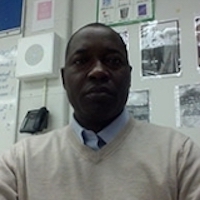 Desire Yamutuale is a PhD student in Western’s Faculty of Education. His current research delves into globalization and its effects on educational policies and curricular programming.
Desire Yamutuale is a PhD student in Western’s Faculty of Education. His current research delves into globalization and its effects on educational policies and curricular programming.
Identity Formation of Chinese International Students in a Canadian International Secondary School
In the contemporary world, schooling is not solely determined by the sovereign nation-state. With the rapid growth in the number of international students, Canadian secondary schools face challenges to facilitate the learning of students as transnational cultural beings. In this research project, I will explore the identity formation of Chinese international secondary students in Ontario, as members of diverse cultural groups. Their evolving identities give meanings to their dreams, actions, and goals. I am just beginning this study examining the learning and identity formation of international students in a private secondary school in Ontario. Through a qualitative case study, I hope to understand Chinese students’ cultural distinctiveness and the flexible accumulation of new cultural components in the Canadian context, which shape their identities as transnational mobile learners. The deep illumination of transnational identity formation of these international students contributes insights to inform how Canadian international schools can best support students from diverse national, cultural, and socio-economic backgrounds.
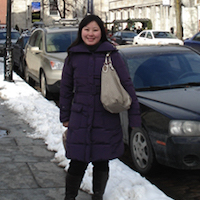 Xi Wu is a PhD student in the Faculty of Education at Western University, Canada, under the supervision of Dr. Paul Tarc. Xi Wu is from Suzhou, China and came to study in Canada from 2012. She holds two master degrees, one in Educational Studies from Western University, Canada and another one in Applied Linguistics from Soochow University in China. As a lecturer, she had taught College English in a technical and vocational college in Suzhou, China for eight years. Besides, she also had worked as a Mandarin and IELTS instructor in a Canadian secondary school for almost one year. Her transnational identity motivates her studies in the internationalization and education, globalizing English language curriculum, transnational education, and global citizenship.
Xi Wu is a PhD student in the Faculty of Education at Western University, Canada, under the supervision of Dr. Paul Tarc. Xi Wu is from Suzhou, China and came to study in Canada from 2012. She holds two master degrees, one in Educational Studies from Western University, Canada and another one in Applied Linguistics from Soochow University in China. As a lecturer, she had taught College English in a technical and vocational college in Suzhou, China for eight years. Besides, she also had worked as a Mandarin and IELTS instructor in a Canadian secondary school for almost one year. Her transnational identity motivates her studies in the internationalization and education, globalizing English language curriculum, transnational education, and global citizenship.
Knowledge Production in International Research Collaboration: A Comparative Study of Canadian and Colombian Research Networks
This study examines how knowledge is produced by means of international research collaboration (IRC) in three distinct research networks tied to universities in Canada and Colombia. IRC represents a complex phenomenon influenced by local and global flows of knowledge, policies, practices and rationales, mediated by the different actors involved in these initiatives. The current dynamics of knowledge mobilization delineate multiple interconnections among researchers that surpass the institutional and national orders configuring networks of global/local dimensions. These research networks become a propitious space for knowledge sharing, discussions, and creation of new knowledge. This research asks: Who are the actors involved in IRC in their respective research networks? How are they engaged in IRC? What influences the processes of knowledge production in IRC? What are the enablers and constraints? What are the effects of IRC? Its theoretical framework draws upon post-foundational (postmodern, poststructural, and postcolonial) assumptions in connection with a spatial theorizing in the field of comparative and international education. Methodologically, it comprises semi-structural interviews in both geographical sites and collection of research and policy documents for a situated, detailed and in-depth analysis within and across cases.
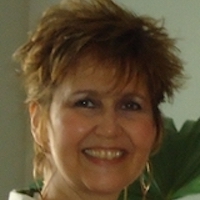 Clara I. Tascón is a PhD Candidate in Education Studies at Western University Canada. Her current research is focused on the internationalization of higher education and, in particular, on international research collaboration. Her previous studies involve research in higher education and the effect of global trends on universities in Colombia. She is a former professor in several universities in Colombia.
Clara I. Tascón is a PhD Candidate in Education Studies at Western University Canada. Her current research is focused on the internationalization of higher education and, in particular, on international research collaboration. Her previous studies involve research in higher education and the effect of global trends on universities in Colombia. She is a former professor in several universities in Colombia.
The Relationship Between Federal Citizenship and Immigration Policies and the Internationalization of Higher Education in Canada
My doctoral thesis examines the relationship between citizenship and immigration policies and the internationalization of higher education in Canada. Canada provides a unique place to conduct my study, where education is a provincial responsibility whereas citizenship and immigration is a federal mandate. With no concrete federal policy governing the internationalization of Canadian universities, individual institutions are tasked with creating their own internationalization strategies. However, discrepancy and mismatch between national, provincial and institutional polices may thwart university efforts to recruit and retain international students and ultimately derail institutional internationalization efforts. Using critical policy analysis and actor-network theory, I examine how citizenship and immigration policies intersect, how these policies are connected, how people and practices are assembled around these policies, and how university administration, staff, and students are affected by the evolving nature of both immigration and citizenship and the internationalization aspirations of the university. Overall, my research agenda touches on themes pertaining to the internationalization of higher education in an era of globalization and transnationalism, the intersection of federal and provincial governments in Canada, and immigration and citizenship in an age of increased global mobility.
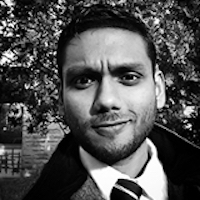 Rashed Al-Haque is a PhD candidate at the Faculty of Education at Western University, Canada, working under the supervision of Dr. Marianne Larsen. Originally from Bangladesh and having grown up in Kuwait, Rashed moved to Canada in 2006. He holds a Bachelors of Science Honours and a Masters of Education in Cultural and Policy Studies from Queen’s University, Canada. His research interests include university internationalization, globalization of higher education, citizenship and immigration, comparative and international education, global citizenship education in post-secondary contexts, and leadership practices with respect to university internationalization.
Rashed Al-Haque is a PhD candidate at the Faculty of Education at Western University, Canada, working under the supervision of Dr. Marianne Larsen. Originally from Bangladesh and having grown up in Kuwait, Rashed moved to Canada in 2006. He holds a Bachelors of Science Honours and a Masters of Education in Cultural and Policy Studies from Queen’s University, Canada. His research interests include university internationalization, globalization of higher education, citizenship and immigration, comparative and international education, global citizenship education in post-secondary contexts, and leadership practices with respect to university internationalization.
Past Events
Dr. Jason Beech – March 27 – 31, 2020
School of Education
Universidad de San Andrés
Argentina
Host: Marianne Larsen
Visit Dates: March 27-31, 2020
Public Lectures: "Global policy spaces and educational reform: mapping the trajectories of power in education" and "Multiple federalism: comparing federal educational systems in Latin America".
** Dates, times, locations TBD.
Xiaohang Gai - February 19, 2020
Xiaohang Gai, College of Western Languages, Harbin Normal University, China
Host: Prachi Srivastava
Visit Dates: September 2019 - September, 2020
Public Lecture: "An Empirical Study on Effectiveness of Blended Learning in College English Teaching in China". Wednesday, February 19, 2020, 1:30 - 2:30 pm, FEB 1195B
This study adopted an empirical approach to examine the effectiveness of blended learning in college English teaching. A one-year teaching experiment was conducted on students majoring in English at H University to explore whether blended learning is an effective way to improve students’ learning. Through data analysis, it can be found that blended learning participants held positive attitudes towards blended learning and their test scores are higher than the scores of the control group. The findings of the study indicate that blended learning could help students develop self-regulated and cooperative learning strategies, improve students' motivation to learn and improve students' academic performance.
Dr. Paul Tarc - February 12, 2020
Paul Tarc - Wednesday, February 12, 2020, 1:00 - 2:00 pm, FEB 1010 (Conference Room; originally scheduled for January 22, 2020).
"Save the World in Your Own Time: (Re)conceiving Citizenship Education from an Arendtian Perspective"
> Link to livestream: https://ca.bbcollab.com/guest/098c37c0d1f243bfa9037f4e3deb095c
> Reading: Hannah Arendt "The Crisis in Education"
Dr. Prachi Srivastava - February 5, 2020
Research Talk: Centre for Global Studies, Huron University College

Dr. Prachi Srivastava,
Associate Professor, Education, Western University
Adjunct Professor, Centre for Global Studies Huron University College
A Talk On: Mapping private philanthropy and impact investment in girls' and women's education in Asia: trends and gaps
February 5th, 2020. 1:30 - 3:00pm
Great Hall - Huron University College
CIDE SEMINAR - October 7, 2019
CIDE SEMINAR
Abidjan Principles: The Right to Education

Prachi Srivastava
Prachi Srivastava is an Associate Professor in education and international development, Western University, An Adjunct Professor at University of Ottawa, an adjunct Professor at Huron College, and Senior Visiting Research Fellow at University of Sussex. She’s a Member of the World Bank Expert Advisory Council on Citizen Engagement. Her research interest include: private sector engagement in education in the Global South; global philanthropy and impact investment; private schooling and education privatisation; silent exclusion in/from education; and global education policy and the right to education. Her work has been featured in prominent media outlets. She has provided research evidence in Westminster to the UK All Party Parliamentary Group on Global Education for All, the European Commission, Global Affairs Canada, JICA, UNESCO. She is a signatory of the Abidjan Principles, and holds a doctorate from the University of Oxford.
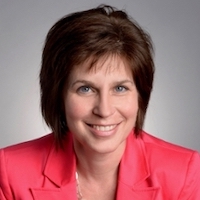
Karen Mundy
Karen Mundy is a Professor of International and Comparative Education at the University of Toronto She is an expert on education in the developing world, former Chief Technical Officer at the Global Partnership for Education , and a past President of the Comparative and International Education Society. Her research includes global politics of “education for all”; educational policy and reform in Sub-Saharan Africa; and the role of civil society organizations in educational change. She has published 6 books and more than 60 articles and book chapters, and is a contributor to dozens of policy papers and reports. She’s a two-time winner of the Bereday award for best article in the Comparative Education Review.
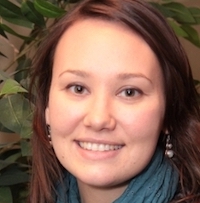
Sarah French
Sarah French is a campaigner on social services and human rights at the Global Initiative for Economic, Social and Cultural Rights. Her work focuses on building a global movement against privatisation of social services, particularly around privatisation of education. Sarah has worked with human rights and international development organisations within Canada and abroad. She recently worked with Amnesty International Canada and Human Rights Internet. She holds a BA(Hons) in Human Rights and Political Science from Carleton University and an LLM in International Human Rights Law from the University of Essex.
The last two decades have seen a significant increase in the scale and scope of non-state actors in primary and secondary education in developing countries that are rapidly transforming education systems. Under which circumstances is the involvement of the private sector in education acceptable? And when can it undermine human rights? What mechanisms must the State have in place to ensure that learners’ and families’ right to education is protected? The involvement of private investors and profit-oriented enterprises, in establishing education services at purportedly ‘low cost’ for poorer people raise significant concern. Several UN reports, resolutions and recommendations, and observations from the African Commission on Human and Peoples’ Rights have raised concerns about the impact of the rapid growth of fee-paying private schools on educational content, quality, potential segregation and inequities. If not monitored and regulated, this could constitute a major challenge in realising the right to education and Sustainable Development Goal (SDG) 4. In February 2019, education stakeholders and legal experts convened in Côte D’Ivoire to adopt the Abidjan Principles on the human rights obligations of States to provide public education and to regulate private involvement in education (‘ Abidjan Principles’). This document unpacks existing law on the right to education, providing a new reference point to address the role of the State and private actors in education. The Principles are intended to be operational in, and adaptable to, different contexts, and to provide a concrete tool for policy work for States and other stakeholders. This session explains the main aims and avenues of implementation of the Abidjan Principles, and how they may be an effective tool within education circles.
Monday October 7, 2019 - 4:00 PM- 5:30 PM
Chair: Carly Manion
OISE Room 7-105 । 252 Bloor Street West, Toronto
This event is being organised in collaboration with RICE, CIDEC, and GIESCR
Dr. Lynn Mario de Souza – October 2019
Dr. Lynn Mario de Souza
Dept. Modern Languages, University of Sao Paulo, Brazil
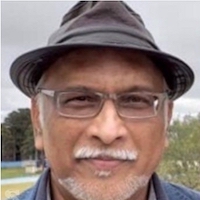
Tuesday October 1, 2019
3:00 - 4:00 pm
FEB 1162
Wednesday October 16, 2019
1:00 - 2:00 pm
Community Room (1139)
Interculturality and Language:From Convergence to Translation
RICE Film and Documentary Club
The club’s purpose is to engage, through the presentation and discussion of films and documentaries, critical issues in education as they emerge in various contexts around the world. The club seeks to position itself as a space for informal academic debate and conversation, nurturing RICE members’ collegiality and promoting our shared interest in international, comparative and contemporary issues in education.
The club uses the Kanopy database https://uwo.kanopy.com to select relevant films and documentaries for discussion. A moderator and/or a panel of experts will host each session aiming to stimulate dialogue among the audience.
All RICE members are encouraged to propose documentaries and films for discussion. You can find an extensive list of curated audio-visual materials at https://uwo.kanopy.com. If you are interested in hosting a session, please contact Gus Riveros at gus.riveros@uwo.ca with the title of the proposed film, a one-paragraph justification, and a tentative date.
December 7, 2018
The Staging Post: The Refugee Education Revolution (Facilitated by Jim Budrow)
April 3, 2019
Visiting Speaker
Dr. Karen Pashby (Manchester Metropolitan University (UK)
Dr. Pashby research draws on critical social theory with a particular focus on post/de-colonial critiques. She is currently researching the possibilities and constraints to infusing de-colonial pedagogies in the teaching of global issues. Her research investigates how to resource and support the meeting of United Nations Sustainable Development Goal 4.7 focusing on education for sustainable development. An experienced secondary and tertiary level educator, Karen speaks, teaches, and writes about the critical questions and imperatives at the heart of global citizenship education to youth, teachers, civil society organisation, and policy makers.
Community Mobilization in Comparative Contexts

Community Mobilization in Comparative Contexts:
Intercultural Strategies to Address Violence against Women & Children
Friday, March 22nd,1-4 p.m.
Faculty of Education, Western University (Community Room 1139)
Overview: There are many successful community-based initiatives in addressing the issue of violence against women and children, both in Canada and abroad. In this half-day symposium, we aim to share knowledge about intercultural strategies that have been used in Tanzania and in London, Ontario to mobilize communities to address and prevent abuse in different cultures. The symposium will bring together individuals from both Africa and Canada to discuss the roles they play in community mobilization, as well as education and prevention initiatives from these diverse cross-cultural contexts. The main aim of the symposium is to ask what we can learn from a comparative perspective about intercultural strategies to mobilize communities to deal, head-on, with the global issue of violence against women and children. The symposium will consist of an opening panel, breakout sessions, and regrouping together for sharing and final discussion.
GUEST SPEAKERS
- Mohammed Baobaid (Executive Director, Muslim Resource Centre for Social Support and Integration)
- Maimuna Kanyamala (Former Director, Kivulini Women’s Rights Organization, Tanzania)
- Anna Hendrikx, Executive Director, and Lisa Widdifield, Outreach Coordinator, Across Languages Translation and Interpretation Services
- Sue, Survivor Liaison and Dawn, Project Coordinator (Survivor Voices Inclusion Project sponsored by The Ontario Association of Interval and Transition Houses)
Conference registration fees – Students/Unwaged = $5; All Others = $10
(Please bring cash or cheque to the symposium to cover your registration.)
This symposium is sponsored by:
Providing and Scaling Education in Zambia: technological solutions & a low-cost private school model
Inside the Global Educators’ Studio: a moderated Q&A
When: Thursday, 9 March, 11 am-12 pm
Where: Faculty of Education Building, Room 1139 (Community Room)
Visiting Speaker: Reshma Patel, Executive Direct, Impact Network, New York
Moderator: Prachi Srivastava, Associate Professor, Faculty of Education, Western
Can private providers innovate and expand access to quality schooling in poor countries at low cost? Should they? What do we mean by low cost?
Join us for an interactive Q&A on Impact Network’s low-cost private schooling model in Zambia. Hot off the heels of a lively debate at the World Bank on whether private providers can meet the needs of the poor in Africa, Reshma Patel, Executive Director of Impact Network, will face questions by Prof. Prachi Srivastava, Faculty of Education, Western, on its ‘eSchool 360’ model.
Impact Network operates 9 privately-managed schools in Zambia’s Eastern Province using its eSchool 360 model, a technology-based model that aims to deliver quality, low-cost, and sustainable education to children in under-served and rural areas. Tablets and projectors provided by the Zambian company, iSchool, are loaded with an active curriculum approved by the Zambian government. It plans to expand to 35 additional schools with a randomized controlled trial evaluation implemented by the American Institutes for Research.
Please contact Dr. Prachi Srivastava ( prachi.srivastava@uwo.ca ) for more information.
Populism, post-truth and politics of division?
Populism, post-truth and politics of division?
Responses for democracy from higher education
March 8, 1:00 to 2:30 pm
Faculty of Education, Room 1139
Liberal Western democracies are currently inundated with discourses of divisive politics, post-truth and the rise of populist movements. We are seeing striking and deeply concerning issues facing democracy in different political situations: discourses of anti-intellectualism and populism that reject science; alternative facts from post-truth media; talk of wall building and protection of national borders; protection of sovereign states; retracting of women's rights; threats to Indigenous communities with expansion of pipelines; expulsion of academics from universities under state of emergency orders. This list seems endless. The emergence of the Women's March and calls to boycott conferences and travel raise questions about what it means to act in solidarity. In an era where walls, borders, and executive orders mediate our relationships and activities, we ask, “what is the role of higher education to educate for democracy and engaged citizenship?” We’ve asked a panel of experts, activists and scholars for a short, rapid response (8 minutes) with time for generating discussion and interaction from the audience. Join us for a lively discussion on how higher education can respond to contemporary socio-political conditions.
RSVP to Dr. Melody Viczko ( mviczko@uwo.ca) to confirm numbers for coffee & goodies!
Rapid Panelists:
Rezvan Shahsavari Googhari
Faculty of Education, Western University
Dr. Ingrid Mattson
London & Windsor Community Chair in Islamic Studies,
Faculty of Theology, Huron University College
Dr. James Compton
Information & Media Studies, Western University
Dr. Marianne Larsen
Faculty of Education, Western University
Dr. Allyson Larkin
Social Justice and Peace Studies, King’s University College
Dr. David Heap
Interfaculty Program in Linguistics & Département d'études françaises, Western University
Visiting Speaker - Dr. Radhika Gorur, Deakin University, Australia
“The Baffling Persistence of Poor Policy Ideas: Some Speculative Theories”
Wednesday, April 4, 2018; 1:30 – 2:30 pm, Room 1118
Panel Discussion
Dr. Radhika Gorur (Deakin University, Australia), Dr. Sue Winton (York University) and Dr. Melody Viczko (Western University)
“Policy research in education: Methodological questions and conversations”
Thursday, April 5, 2018, 10:30 am – 12:00 pm, Room 1010
The Disappearing Global Public Intellectual: Critical Analysis
Dr. Ali A. Abdi (UBC)
Monday, November 13, 3:00 to 4:30, FEB 1010
Abstract
The intellectual history of the world has been, at least until recently, punctuated by the emergence of actively engaged public intellectuals who, at seminal intervals of human life, have influenced and many times, shifted, the way we see and interact with our socio-historical, knowledge and politico-economic contexts. These intellectuals, whether in academia, community-based or in leadership positions, enlarged the space of the public debate, challenged the prevailing epistemic and power relations, and selectively became the vanguard in reading the world differently. From Socrates to Galileo, Gramsci, C. Wright Mills, Fanon, Said, Malcolm X and Mandela, the impact of these public intellectuals has been expansive in the knowledge and rights domains of people’s lives. Lately though, the diminished status, even the horizontal disappearance of such intellectuals is very palpable and does not bode well for the variously marginalized. It is in response to this and related issues that I share my observations on the case. In so doing, I shall not miss the continuing availability of the public space for debates, but unlike previous times, it is now mostly monopolized by those I prefer to label pseudo-intellectuals for hire.
Speaker Biography
Ali A. Abdi is professor of social development education and department head in the Department of Educational Studies at the University of British Columbia. Previously he was professor of education and co-founding director of the Centre for Global Citizenship Education and Research at the University of Alberta. His areas of teaching and research interests include global citizenship and human rights education, social and cultural foundations of education, and decolonizing philosophies and epistemologies of education. He is the founding editor of the Journal of Contemporary Issues in Education, and co-founding editor of Cultural and Pedagogical Inquiry.
Internationalization in Education: What's New?
Matt Bazley, Director & Carolyn Wilson, Program Coordinator
International Office, Faculty of Education
April 18, 11- 12 pm
At this session, Matt Bazley and Carolyn Wilson will provide a framework for how the work of the International Office intersects with the Faculty of Education, a summary of the international education initiatives and a discussion of the challenges and opportunities emerging from their work. We welcome everyone from the faculty to attend to learn about the International Office and possible opportunities for collaboration. There will be light refreshments and lively conversation.
Citizen-Girls: Using Participatory Methodologies with Youth
Dr. Leigh-Anne Ingram, UWO & Miranda Hersco, Student, UOIT
February 17, 2016 2:00 to 3:00 pm FEB 1010
Youth are seldom able to direct the researcher’s gaze or control the camera’s lens. How can participatory visual research methodologies help us understand what young people are learning about their roles as citizens and civic agents? This short workshop will draw on a project in the Greater Toronto Area (GTA) that used a qualitative approach, combining interviews and photovoice, to explore messaging about their roles as girl-citizen-students in Canada. Photovoice is a PAR methodology where participants are given cameras to document their lives and then write and discuss their images, revealing their own natural priorities and values (Mitchell & Allnutt, 2008; Cole & Knowles 2008; Prosser & Burke 2008; Wang & Baker 2006). This inquiry process drew on feminist political theories, Freireian approaches to community development, critical pedagogy and participatory media, allowing the research participants to explore messaging from families, schools and society about self, gender, citizenship and schooling.
This workshop will be co-facilitated by some of the youth who were participant-researchers in the larger Citizen-Girl study and will explore the benefits and limitations of using a collaborative, critical and visually-informed approach to scholarly inquiry that engages youth and attempts to revise power relations in traditional, positivist research. Please join us for this workshop and light refreshments.
Learning About Refugee Migration
November 25, 2015, 2:00 - 3:30 pm, Room 1010
Dr. Isha DeCoito (Faculty of Education)
No One is Illegal London
Dr. Victoria Esses, Director, Centre for Research on Migration and Ethnic Relations, will talk about her research related to the role of the media in the dehumanization of immigrants.
Dr. Isha DeCoito, Assistant Professor in the Faculty of Education, will talk about her research about teaching mathematics and science to refugee students.
A speaker from No One is Illegal London will talk about legal challenges that refugees face in migration.
The Faculty of Education has committed to raising awareness and funds to support Western’s efforts to sponsoring a refugee family to Canada. Several activities have been planned and we encourage you to contribute individually to the sponsorship effort by donating online at: https://www.canadahelps.org/dn/9556 and selecting “Western Social Science Refugee Sponsorship” from the dropdown menu. By mentioning the Faculty of Education in the “message” section we will be able to specifically track our Faculty’s contribution.
English-Speaking cultures in Cuba: theoretical underpinnings, objectives, systems of knowledge, means, and methodology
November 16, 11 am - 12:00 pm
Dr. Manuel Velázquez (University of Holguin, Cuba)
Policy Advocacy for Democracy
Dr. Sue Winton, Lauren Jarvis & Michelle Milani, York University
October 21, 2015, 3:00 pm in the Community Room
Faculty of Education Building, Western University
Recent debates over Ontario’s revised Health and Physical Education (aka “sex ed”) curriculum and teachers’ contracts highlight the diverse range of policy actors in the province’s policy processes. While often messy, citizens’ engagement in these processes is necessary for democracy. Drawing on their current research, Prof. Sue Winton, Lauren Jervis and Michelle Milani will present strategies policy actors use in efforts to influence policy decisions, public sentiment, and everyday practices. Pointing to struggles over fundraising and special education policies as examples, the speakers will also demonstrate how and why social and historical contexts influence outcomes of advocacy efforts.
International Service Learning: Symposium
Friday, march 27, 2015
Visiting Scholar Professor Fazal Rizvi
- April 13 & 14, 2015
- Public Talk: Cosmopolitan Possibilities of Education
- April 13 @ 2 pm
- Click here to see the talk!
- Graduate Student Seminar: Researching Identity and Culture in Transnational Space
- April 14
Talk on International Partnerships: UWO and U of Holguin
The RICE (Research in International and Contemporary Education) Group is sponsoring a talk by Vilma Páez Pérez, University of Holguín (Cuba) professor, on the UWO-University of Holguín partnership agreement. Bring your lunch and learn all about the history, background and future plans for the long-standing partnership agreement between our two universities.
- Thursday, Febryary 5, 2015
- 12:30 pm to 1:30 pm
- Room 1010, Faculty of Education
Book Discussion: The Beautiful Risk of Education
Monday, February 23, 2015 @ 1:30
One day summer symposium: Teaching in international schools
- July 2014 – day to be determined
- Faculty of Education
Educating in trans-national/cultural contexts: Working with, against and despite global ‘best practices’
- Symposium Flyer
- Co-sponsored with the Comparative, International and Development Education Center (CIDEC) OISE/UT
- April 25, 2014
- Faculty of Education
Intercultural vs. Multicultural Education: The End of Rivalries?
- A multi-sited international conference co-sponsored by RICE
- February 27-28, 2014
- Faculty of Education
lenary Speakers
- Professor Vanessa Andreotti , Faculty of Education, University of Oulu, Finland
- Professor Julie Byrd Clark , Faculty of Education, Western University, Canada
- Professor Fred Dervin , Department of Teacher Education, University of Helsinki, Finland
For more detailed information (e.g. Call for Papers) please click on the following link:
http://interculturalvsmulticultural.wordpress.com
Postcolonial Approaches to Global Citizenship Education
Dr. Vanessa Andreotti, Canada Chair in Race, Inequalities and Global Chance, UBC
- February 26, 2014.
- Time and Place TBA
A Transformative Approach to global Service-Learning: Lessons Learned from the Field
Dr. Ricahrd Kiely, Director of Engaged Learning & Research, Cornell University
- January 31, 2014 at 10:00 a.m.
- Community Room (1138)
Rethinking Global Education for an Indigenist Anti-Colonial Perspective
Dr. George Dei, Department of Social Justice, OISE/UT
- November 21, 2013 at 1:00 pm
- Community Room (1138)
Dr. Marte Gullikson – Teacher Education in Norway
- Co-sponsored with HIRG
- Friday November 8, 2013 @1:30 in room 1010, Faculty of Education
RICE Book Club
Click on book image for details and to order the book.
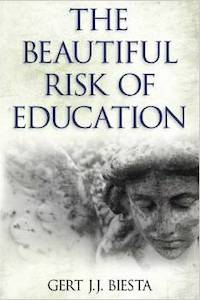 |
Monday, February 23 @1:30 – Book Discussion: The Beautiful Risk of Education |
Past Books
Click on book image for details and to order the book.
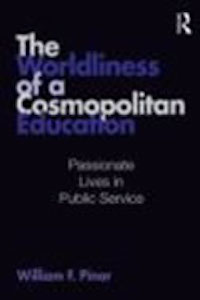
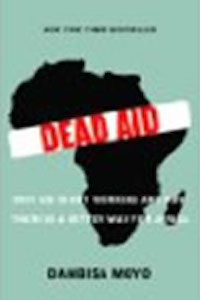

Global Education Research Speaker Series
Fall Term 2017
Dr. Ricardo Scucuglia - Sao Paulo State University Brazil
Becoming a professor in Brazil: A conversation with graduate students
October 17, 2017, 11:00 am to 12:00 pm,
FEB 1044
Dr. Ali A. Abdi - University of British Columbia
The location of the public intellectual in global higher education
November 13, 2017, 3:00 to 4:30 pm,
FEB 1010
NEW RICE/CIDEC Compendium
WORKING WITH, AGAINST AND DESPITE GLOBAL ‘BEST PRACTICES’
EDUCATIONAL CONVERSATIONS AROUND THE GLOBE
Edited by
Sarfaroz Niyozov, Associate Professor, CIDEC, OISE, University of Toronto
Paul Tarc, Associate Professor, RICE, University of Western Ontario
What are global best practices? What is the character of these so-called best practices, their conceptual underpinnings and routes of assemblage? Which ‘best practices’ are travelling, how, and to which ‘local’ educational domains? How are they interpreted and engaged in local contexts and what are their effects? And ultimately, how are progressive and critically-minded educators to work with, against and despite global ‘best practices?’
To address these conditions and questions as framed above, a symposium for Ontario based comparative and international educators and researchers was convened at the Ontario Institute of Studies of Education, University of Toronto on April 25, 2014. This forum was a collaborative project between the two comparative and international education centers in Ontario: Western University’s Research in International and Contemporary Education (RICE) and OISE’s Comparative, International and Development Education Center (CIDEC). Though small in scope and modest in its format, this symposium proved to be a unique opportunity for Canadian education scholars, practitioners, and graduate students to converge and to critically and collectively engage these questions. Twelve faculty and twenty graduate students from Universities of Toronto, York, Western and Ottawa served as panelists and discussants. Professor Gita Steiner-Khamsi, a leading scholar in the field of educational borrowing and lending, from Teachers College, Columbia University gave the keynote address. In addition 80 participants from Ontario’s education faculties, NGOs and government agencies attended this one-day intensive symposium. The graduate student panelists were invited to submit written extensions of their presentations after the symposium to produce a report. About half of the graduate student panelists contributed to the compendium. Co-editors Paul Tarc and Sarfaroz Niyozov wrote the introduction and Keynote Gita Steiner-Khamsi contributed the afterword
Previous Visitng Scholars
Dr. Fred Dervin
University of Helsinki, Finland
June 2012
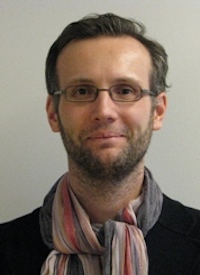
Upon the invitation of Dr. Julie Byrd Clark, and successful application for the Visiting Scholar Award, Dr. Fred Dervin, from the University of Helsinki, Finland, came to the Faculty of Education during the month of June 2012. During his visit, Dr. Dervin gave four public lectures, one of them included a keynote address at the 2012 RICE Symposium. Dr. Fred Dervin’s visit proved to be a very successful one as well as a productive one. The sheer magnitude of his publications and expertise coupled with his pleasant and accessible demeanour invited students, staff, and faculty members to engage with him in lively discussions and intellectual debate. Graduate students and faculty benefited from meeting with and having the opportunity to discuss their proposed and current research projects with Professor Dervin. His impact has also been felt in the extent to which he has energized both student and faculty interest in digital technologies and multimodality; “self-other” relations in complex, transnational spaces as well as international mobilization; exploring new and innovative comparative approaches and methods for international education research.

